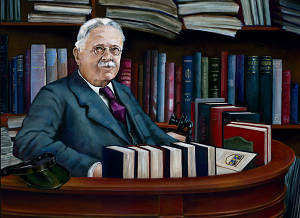The common law still bears the impress of individual rights. So in order to achieve the purpose of legal order there has to be Recognition of certain interest. Individual, public, social
A definition of the limits within which such interests will be legally recognised and given effect.
The securing of those interests within the limits defined. Law is a means of social control e.g. if a factory is polluting, the court should see various social interests involved. Method of social engineering: Jurist must prepare an inventory of social investigation. Legal principles and actual social effects.
According to Pound, jurisprudence is the science of social engineering.
This brings a balance in conflicting interests in society. In order to assess the word social engineering,
Roscoe Pound classified various interests that are to be protected by law.
Individual Interest: These are claims or demands or desires involved in and looked at from the standpoint of individual life. They concern:
- Personality – includes interest in (a) Physical person (b) freedom of will (c) honour and reputation (d) Privacy (e) belief and opinion
- Domestic Relation – (a) property (b) freedom of industry and contracts (c) promised advantage (d) advantageous relations with others (e) freedom of association (f) continuity of employment.
Public Interest
Interest of the state as a juristic person – includes: (a) integrity, freedom of action and honour of state personality and (b) claim of politically organized society as a corporation to property acquired and held for corporate purposes.
Social Interest
Social interest in the general security. Those branches of law which relate to – (a) general safety (b) General health (c) Peace and order (d) Security of acquisition (e) Security of transaction. Social interest in security of social institut ions: (a) Domestic institution (b) Religious institution (c) Political institution (d) Economic institution. Social interest in general morals: prostitution, drunkenness, gambling.
Social interest in conservation of social resources.
Conservation of natural resources
Protection of and gaining of dependents and defectives.
Social interest in general progress (a) Economic progress (b) Political progress (c)
Cultural progress
Social interest in individual life.
· Tasks of law
- Satisfaction of maximum human wants and interests.
- Duty of law to make valuation of interests – best interests to be secured.
- Allen calls it: “Experimental Jurisprudence”.
- Jural Postulates – These are the basic assumptions on which the ordering of conflicting interests rests in every society.
- In total there are five postulates as per Pound:-
- Others will commit no intentional aggression upon men. (This relates to Criminal Law).
- The society will use discoveries etc. for its own use. (This relates to Law of Patents).
- In their general intercourse, men will act in good faith. (This relates to Law of Contract).
- Men will take due care of others in their general behaviour. (This relates to Law of Tort).
- Harmful things will be kept in proper bounds. (This relates to the Rule of Strict Liability).
· How to balance between the interests?
- The various interests are weighed on the same plane.
- If an interest is transferred, it will be transferred only to the social plane. For example – individual’s freedom will transform into social freedom.
New situations will arise to the new problems for which the existing law will not be sufficient. Therefore, the judges will dispense justice without law.
Criticism – Critical Analysis:
- It only highlights the functional aspect of law and ignores the nature and character of law.
- In certain cases, law pre-exists interests.
- Lack of criteria of evaluation.
- Misleading, balancing metaphor.
- Emphasised judicial activism to be greater than legislation.
- Judiciary has its own limitations.
- Interests cannot be confined in different categories as the value of different interests change according to times and society.
- Conflict/Consensual model of society:
Pound’s theory is relevant only for an ideal society
Applicability to India
Conflict/Consensual model of society:
Pound’s theory is relevant only for an ideal society.
Harmonising of interests is not always possible, e.g., labour-capital or landlord-tenant.
Quinney:
- Law is a social product
- Majority interests/minority interests
- Reservation for minorities in India has, infact, aggravated the problem
- Fundamental Rights/Directive Principles of State Policy



